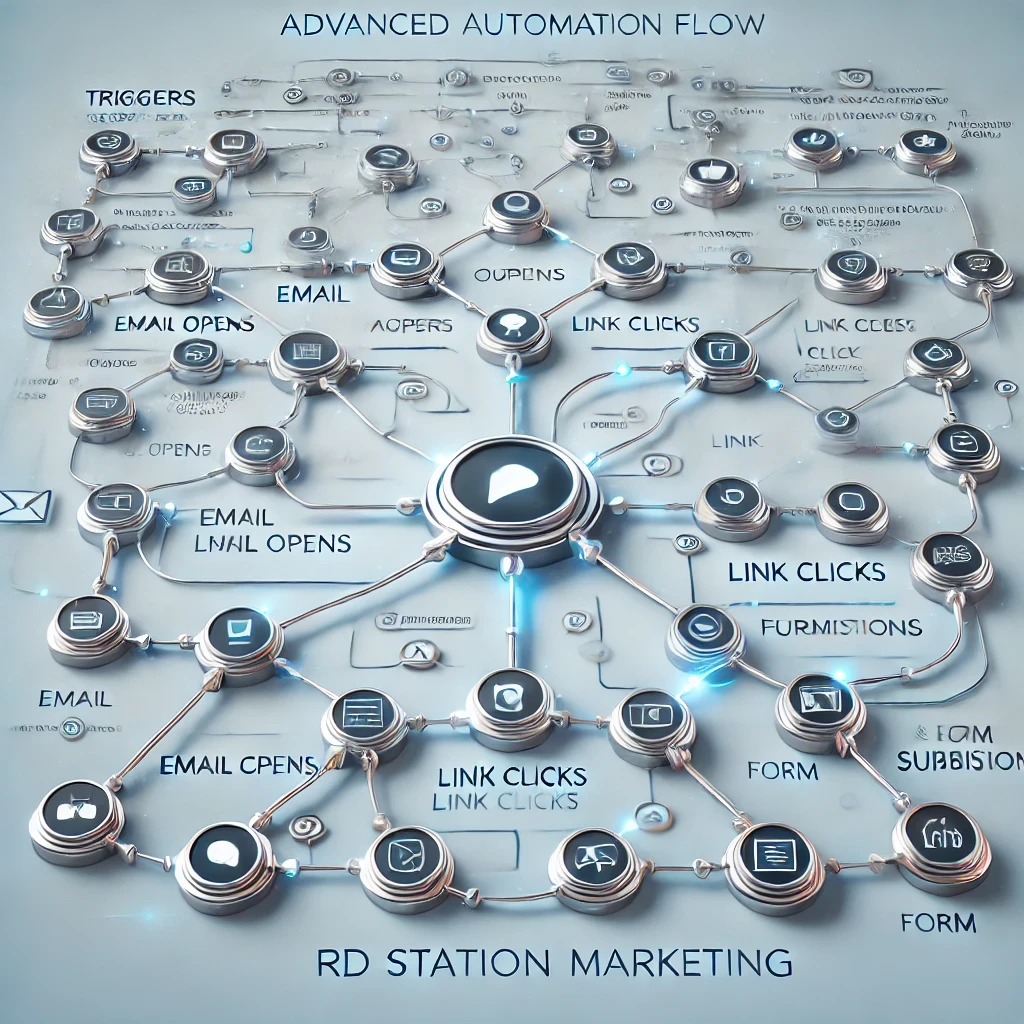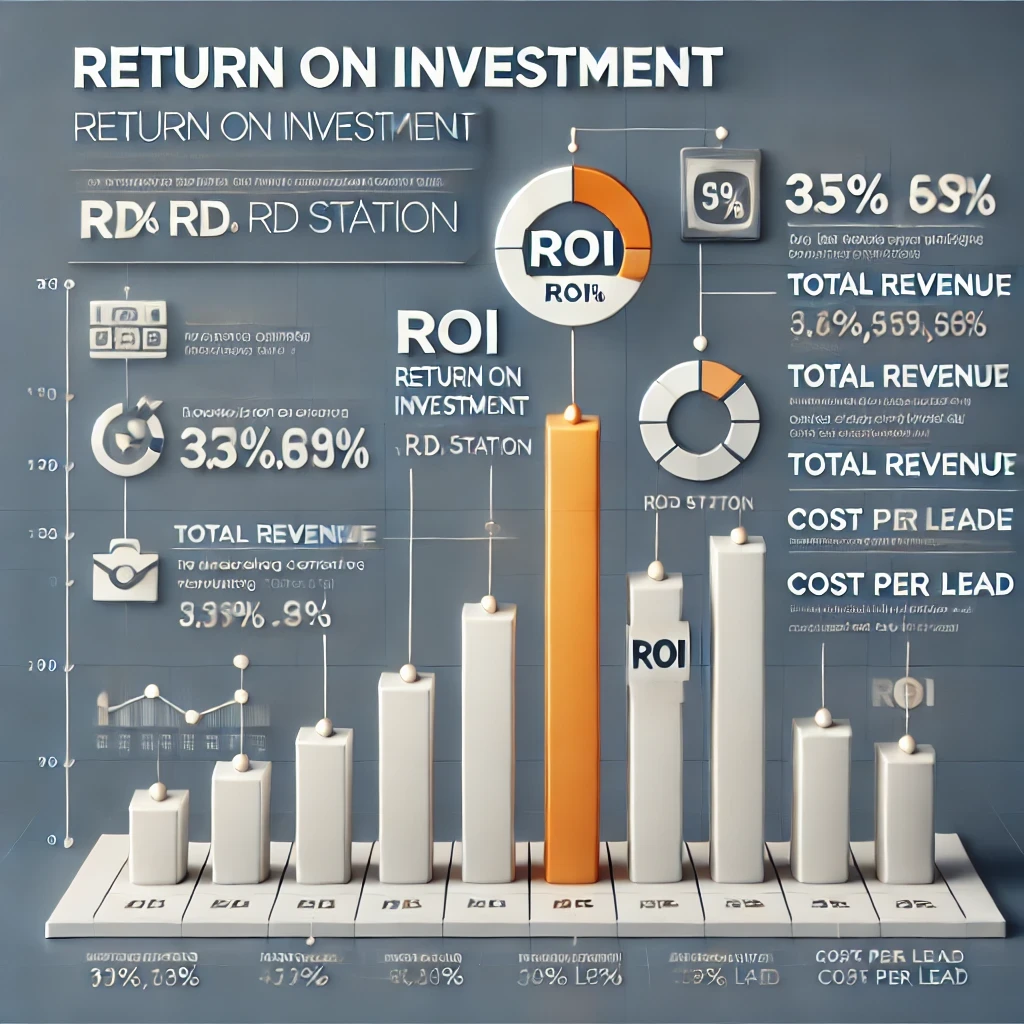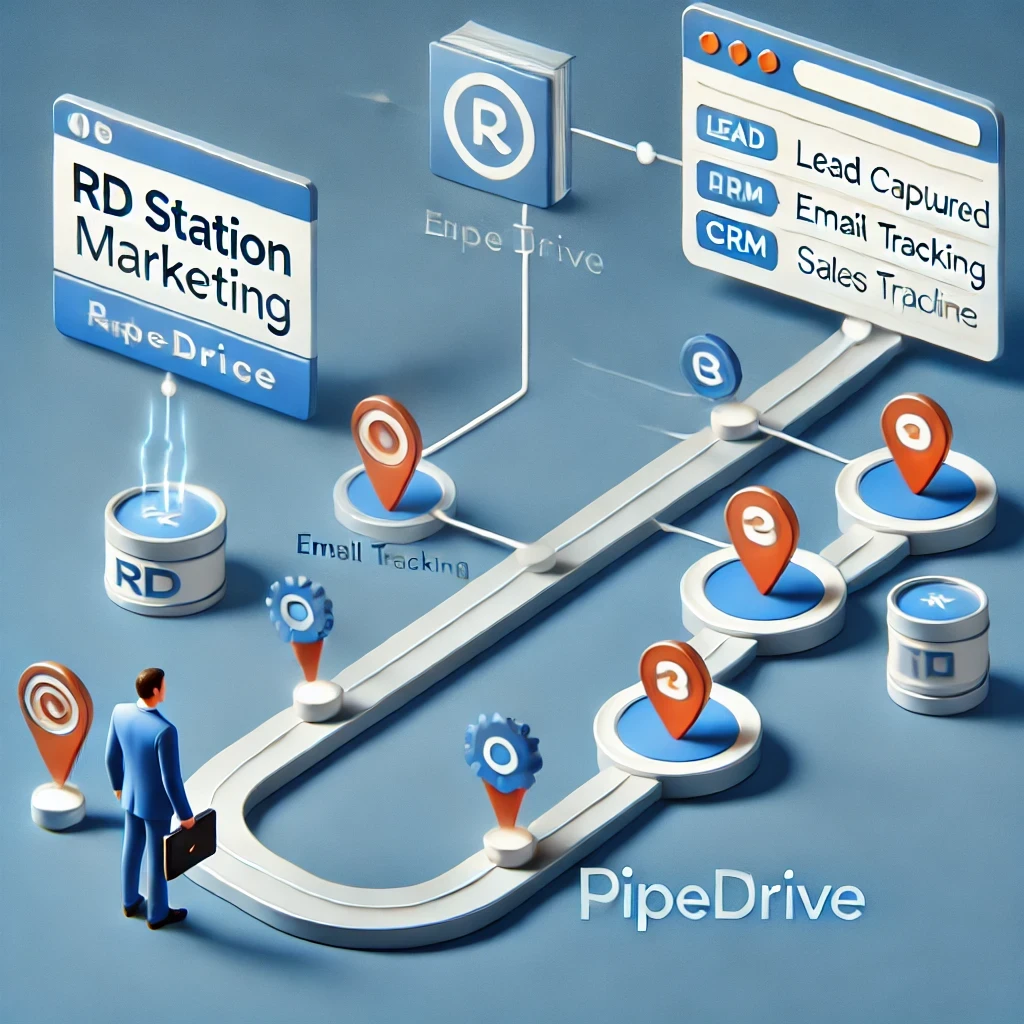PRODUCT
Design
Content
Publish
Marketing Automation: Tools and Strategies to Maximize Results
Marketing Automation: Tools and Strategies to Maximize Results
Marketing Automation: Tools and Strategies to Maximize Results
Marketing



As marketing automation tools are being widely used by small and medium enterprises. These platforms help to be more productive and to unify various sales channels. However, choosing the right tool can be complicated with so many options available in the market.
To make the right choice, it is important to know the available options. Also, think carefully about the benefits that each one can bring to your business. Marketing automation helps improve processes, increase efficiency, and effectiveness of campaigns.
It also enhances personalization and data analysis. All of this leads to better marketing results.
Main Learning Points
The tools of marketing automation provide greater productivity and synergy between sales channels.
Consider various aspects to choose the best marketing automation tool.
Marketing automation can optimize processes, increasing the efficiency and effectiveness of campaigns.
Marketing automation improves personalization and data analysis, enhancing marketing results.
It is important to know the different options available in the market for marketing automation tools.
The Power of Marketing Automation
Marketing automation brings many benefits to today's companies. It provides more efficiency and scalability. By automating tasks like sending emails and managing social media, we gain time. This extra time allows us to focus on innovative ideas that truly make an impact. Thanks to automation, our teams can be more productive without needing more people. All while maintaining consistency and accuracy, without errors, for a better customer experience.
Efficiency and Scalability for Modern Businesses
Marketing automation improves the efficiency and scalability of businesses. It takes repetitive tasks out of our hands, giving us more time. This time and the resources we free up can be used for more strategic activities. In this way, we can increase our marketing efforts without the need to hire new people. This allows us to operate in a more effective manner and be prepared for growth.
Automating Repetitive Marketing Tasks
Automating repetitive tasks such as sending emails brings significant benefits. We leave these daily activities in the hands of automation. Thus, we are free to focus on actions that are genuinely strategic and creative. This overall increases the success of our marketing initiatives.
Benefits of Marketing Automation
Marketing automation helps businesses in many ways. It increases the ROI (Return on Investment) and reduces operational costs. By automating tedious tasks, companies gain time and resources. This enables a focus on more strategic activities.
Mass Personalization and Customer Engagement
Another advantage is the mass personalization that automation offers. It creates very relevant experiences for customers. And with detailed insights, companies know what customers want. Thus, they continuously improve their strategies and campaigns.
Detailed Insights and Data Analysis
Automation provides access to important information about customers. This helps companies make more informed choices. With this analysis, they can always enhance their strategies. This way, they achieve even better results.
Choosing the Right Tool
When choosing a marketing automation tool, several points are essential. The value and functionalities are vital. We need to balance the investment with what the company needs.
Cost and Features of Tools
When choosing among various options, looking at the cost-benefit is key. We need to consider not just the purchase price, but also ongoing expenses. This includes monthly or annual payments and which features are available to us.
Ease of Use and Integration Options
The ease of using the tool is crucial for the team. Integration with systems and platforms already used by your company should be taken into account. This helps maintain a good flow of information and efficiency.
Customer Support and Training Resources
Customer support and available tutorials are also important. Check if the company offers good training materials. This helps your team make the most of the tool.
Implementing Marketing Automation
To succeed with marketing automation, it is important to have good planning. Start by defining clear and measurable objectives. They should fit the company's goals. Use performance metrics to see if you are progressing well.
Target Audience Segmentation
Next, you should precisely segment the target audience. This helps to send messages that are truly interesting. Thus, we increase engagement with the audience.
Creating Relevant Content
Creating relevant and engaging content is essential. Every piece of content needs to be planned to meet the needs of whom we want to reach. It can be an email, landing page, or posts on social media.
Setting Up Automation Workflows
Now, let’s talk about workflow setup. They are vital for the success of marketing automation. With the right workflows, we create processes that save time and resources.

Developing Content for Automation
Relevant and attractive content is key in marketing automation. Every piece of content, such as emails or posts, should be designed to capture the audience's attention. Factors like who the audience is, personalization, and the way of speaking are essential.
This content helps to transform visitors into potential customers. It should follow a logical line that guides them at each step.
Automated content is vital for reaching many people without losing the personal touch. It allows companies to effectively reach different audiences. Thus, marketing teams can focus on creating excellent content. This contributes to improving the quality of the marketing offered.
Having a clear strategy is essential. It involves knowing who the audience is, how to impact them uniquely, and where to find this content. Well-thought-out content is more attractive. It increases the connection with the audience, promoting an increase in conversions.
Marketing Automation
Marketing automation uses technology to automate tasks. It makes marketing processes easier. This improves efficiency and allows teams to be more creative.
Understanding the Concept and Its Importance
Marketing automation is crucial for modern companies. It helps improve campaigns and customer experience. By automating functions like sending emails or managing social media, companies can focus on better strategies.
Types of Marketing Automation
There are several types of marketing automation. For example, email automation and audience segmentation. Others include social media management and data analysis. With these tools, companies see benefits like increased personalization, better customer relationships, and more accurate analyses of their strategies.
Main Marketing Automation Tools
There are many options on the market, but it is crucial to know about the best tools. Let’s highlight three of them:
HubSpot: Complete Resources and Advanced Integration
HubSpot is known for being comprehensive. It helps create and develop leads, in addition to analyzing data. It stands out for connecting with different systems and being easy to use.
Mailchimp: Accessible Solution and Easy to Use
If you are looking for something accessible and simple, Mailchimp is ideal. With it, it is easy to create email campaigns with segmentation and personalization.
Marketo: Advanced Personalization and Powerful Segmentation
Marketo excels in personalization and audience segmentation. It allows creating unique journeys for customers using behavior and engagement data.
Effective Marketing Automation Strategies
To succeed in marketing automation, we need well-crafted plans. Strategies like lead nurturing and improving the customer journey make a difference. Additionally, using automated email marketing campaigns and social media automation and paid advertising helps a lot.
Lead Nurturing and Customer Journey
In lead nurturing, we create personalized messages to follow up with potential customers. With automation, we create appropriate email marketing flows and content for them. This improves their chances of engaging and purchasing.
Automated Email Marketing Campaigns
Using automated email marketing campaigns helps a lot. We can send tailored emails to each contact. This includes welcome messages or promotions, choosing the best timing based on customer behavior.
Social Media Automation and Paid Advertising
Social media automation and paid advertising improve the company's online presence. We can schedule posts, manage ads, and even reply to comments without interruption. Thus, we have more time to create content that makes a difference and improve campaigns.

Integrating Marketing Automation with Other Strategies
To succeed in marketing automation, it is key to combine it with other tactics. Crucial is to connect with:
CRM and Sales
The integration of marketing automation with CRM improves sales and marketing together. This provides a clear view of the customer. It enhances personalization and increases sales.
Data Analysis and Business Intelligence
Using data analysis and business intelligence maximizes the use of automation. It helps better understand the customer. And leads to more accurate marketing actions.
Conversion Optimization and A/B Testing
To improve with automation, focusing on conversion optimization and A/B testing is vital. By testing, companies find the best strategies. This leads to more effective results.
Strategy Integration Benefits CRM and Sales 360° view of the customer, personalization of the journey, lead conversion Data Analysis and Business Intelligence Informed decision-making, strategy optimization, impact measurement Conversion Optimization and A/B Testing Identification of best practices, continuous improvement of results
Metrics and Performance Analysis
For marketing automation to work, it is crucial to closely monitor metrics. This includes analyzing how strategies perform. Thus, we find what is good, see where to improve, and adjust as necessary.
Tracking Leads and Conversions
Tracking leads and conversions is key. This helps to know if our campaigns are attracting customers. We will be able to improve automation to create more business opportunities.
Measuring Campaign ROI
Measuring the ROI of campaigns is very important. This allows us to see the money our automation actions bring in. With this information, we make smarter choices and use our resources better.
Identifying Improvement Opportunities
Looking beyond leads and ROI is essential. We need to see where we can improve our automation tactics. With data on email open rates and conversion rates, we adjust strategies. Thus, we achieve better results.
Metric Description Importance Email Open Rate Percentage of emails sent that were opened by the target audience. Indicates the effectiveness of campaigns and the relevance of the content to customers. Click-Through Rate Percentage of clicks on links in emails or automated content. Shows the audience's interest and ability to attract visits to the website. Conversion Rate Percentage of leads that became customers through automation actions. Shows the effectiveness of automations in sales. Cost per Lead/Conversion Investment necessary for each new customer thanks to automation. Helps see if our investment pays off in sales.
Best Practices and Tips
To succeed with marketing automation, we should follow some important best practices. These tips will help us make our strategies more effective. Thus, our audience engages more, and our businesses grow.
Precise Audience Segmentation
It is crucial to segment our audience well for automation to work. By doing this, we can personalize messages. Then, each group receives more relevant content, which improves the connection with the brand.
Content and Message Personalization
Personalization is vital for automated marketing. Creating tailored content and messages for each person is very important. This makes our communication more engaging and effective.
Continuous Testing and Optimization
Marketing automation requires constant testing and optimization. We must never stop looking for ways to improve. This includes testing different types of content and adjusting according to performance.
Trends and Future of Marketing Automation
Technology advances and marketing automation evolves with it, gaining prominence in marketing. For the future, we see the increasing use of artificial intelligence (AI) and machine learning. This will enable better personalization of interactions with customers and data-driven marketing decisions.
Moreover, we foresee a greater synergy between marketing automation and other technologies. This includes CRM systems, data analysis, and augmented reality. These partnerships will enhance the effectiveness of marketing strategies. The future of marketing automation shows a closer integration between communication channels. This will create an even smoother and more personalized customer journey.
Companies looking to stand out in a competitive market will find marketing automation crucial. It will help drive innovation, agility, and sustainability in marketing efforts. We are excited to see how this field will grow and change brand communication with customers.
FAQ
What is marketing automation and what are its main benefits? Marketing automation uses technology to carry out marketing tasks automatically. This helps to have more efficient marketing actions that better achieve objectives. It brings benefits such as increased ROI, more personalized communication, customer engagement, and deeper insights into action performance.
What are the main types of marketing automation? The main types are automated email marketing, social media management, target audience segmentation, and marketing data analysis.
What are the main marketing automation tools available in the market? Among the most well-known are HubSpot, Mailchimp, and Marketo. Each offers its own features and ways to assist in marketing.
How to choose the best marketing automation tool for my company? When choosing, it is important to consider cost, functionalities, usability, integrations, and support. Checking if it meets the company’s needs is essential.
What are the steps to successfully implement marketing automation? To start well, it is vital to plan. Defining goals, thoroughly understanding the audience, producing quality content, and setting up workflows are crucial steps.
What marketing automation strategies are the most effective? Strategies that focus on nurturing leads and understanding the customer journey are quite effective. The use of email marketing, automation on social media, and paid advertising also stands out.
How to integrate marketing automation with other strategies and tools of the company? Integrating with CRM, data analysis, and A/B testing helps enhance automation efficiency. This maximizes marketing results.
What are the main metrics and performance analyses for marketing automation? It is important to track metrics such as leads generated, conversions, and campaign ROI. Identifying improvement points is key to ongoing success.
What are the best practices and tips for achieving effective results with marketing automation? Good practices include thoroughly knowing your audience, personalizing content, and maintaining frequent testing for adjustments. These actions are crucial for success.
What are the main trends and the future of marketing automation? With technological advancements, marketing automation is expected to become increasingly sophisticated and important in digital marketing.
As marketing automation tools are being widely used by small and medium enterprises. These platforms help to be more productive and to unify various sales channels. However, choosing the right tool can be complicated with so many options available in the market.
To make the right choice, it is important to know the available options. Also, think carefully about the benefits that each one can bring to your business. Marketing automation helps improve processes, increase efficiency, and effectiveness of campaigns.
It also enhances personalization and data analysis. All of this leads to better marketing results.
Main Learning Points
The tools of marketing automation provide greater productivity and synergy between sales channels.
Consider various aspects to choose the best marketing automation tool.
Marketing automation can optimize processes, increasing the efficiency and effectiveness of campaigns.
Marketing automation improves personalization and data analysis, enhancing marketing results.
It is important to know the different options available in the market for marketing automation tools.
The Power of Marketing Automation
Marketing automation brings many benefits to today's companies. It provides more efficiency and scalability. By automating tasks like sending emails and managing social media, we gain time. This extra time allows us to focus on innovative ideas that truly make an impact. Thanks to automation, our teams can be more productive without needing more people. All while maintaining consistency and accuracy, without errors, for a better customer experience.
Efficiency and Scalability for Modern Businesses
Marketing automation improves the efficiency and scalability of businesses. It takes repetitive tasks out of our hands, giving us more time. This time and the resources we free up can be used for more strategic activities. In this way, we can increase our marketing efforts without the need to hire new people. This allows us to operate in a more effective manner and be prepared for growth.
Automating Repetitive Marketing Tasks
Automating repetitive tasks such as sending emails brings significant benefits. We leave these daily activities in the hands of automation. Thus, we are free to focus on actions that are genuinely strategic and creative. This overall increases the success of our marketing initiatives.
Benefits of Marketing Automation
Marketing automation helps businesses in many ways. It increases the ROI (Return on Investment) and reduces operational costs. By automating tedious tasks, companies gain time and resources. This enables a focus on more strategic activities.
Mass Personalization and Customer Engagement
Another advantage is the mass personalization that automation offers. It creates very relevant experiences for customers. And with detailed insights, companies know what customers want. Thus, they continuously improve their strategies and campaigns.
Detailed Insights and Data Analysis
Automation provides access to important information about customers. This helps companies make more informed choices. With this analysis, they can always enhance their strategies. This way, they achieve even better results.
Choosing the Right Tool
When choosing a marketing automation tool, several points are essential. The value and functionalities are vital. We need to balance the investment with what the company needs.
Cost and Features of Tools
When choosing among various options, looking at the cost-benefit is key. We need to consider not just the purchase price, but also ongoing expenses. This includes monthly or annual payments and which features are available to us.
Ease of Use and Integration Options
The ease of using the tool is crucial for the team. Integration with systems and platforms already used by your company should be taken into account. This helps maintain a good flow of information and efficiency.
Customer Support and Training Resources
Customer support and available tutorials are also important. Check if the company offers good training materials. This helps your team make the most of the tool.
Implementing Marketing Automation
To succeed with marketing automation, it is important to have good planning. Start by defining clear and measurable objectives. They should fit the company's goals. Use performance metrics to see if you are progressing well.
Target Audience Segmentation
Next, you should precisely segment the target audience. This helps to send messages that are truly interesting. Thus, we increase engagement with the audience.
Creating Relevant Content
Creating relevant and engaging content is essential. Every piece of content needs to be planned to meet the needs of whom we want to reach. It can be an email, landing page, or posts on social media.
Setting Up Automation Workflows
Now, let’s talk about workflow setup. They are vital for the success of marketing automation. With the right workflows, we create processes that save time and resources.

Developing Content for Automation
Relevant and attractive content is key in marketing automation. Every piece of content, such as emails or posts, should be designed to capture the audience's attention. Factors like who the audience is, personalization, and the way of speaking are essential.
This content helps to transform visitors into potential customers. It should follow a logical line that guides them at each step.
Automated content is vital for reaching many people without losing the personal touch. It allows companies to effectively reach different audiences. Thus, marketing teams can focus on creating excellent content. This contributes to improving the quality of the marketing offered.
Having a clear strategy is essential. It involves knowing who the audience is, how to impact them uniquely, and where to find this content. Well-thought-out content is more attractive. It increases the connection with the audience, promoting an increase in conversions.
Marketing Automation
Marketing automation uses technology to automate tasks. It makes marketing processes easier. This improves efficiency and allows teams to be more creative.
Understanding the Concept and Its Importance
Marketing automation is crucial for modern companies. It helps improve campaigns and customer experience. By automating functions like sending emails or managing social media, companies can focus on better strategies.
Types of Marketing Automation
There are several types of marketing automation. For example, email automation and audience segmentation. Others include social media management and data analysis. With these tools, companies see benefits like increased personalization, better customer relationships, and more accurate analyses of their strategies.
Main Marketing Automation Tools
There are many options on the market, but it is crucial to know about the best tools. Let’s highlight three of them:
HubSpot: Complete Resources and Advanced Integration
HubSpot is known for being comprehensive. It helps create and develop leads, in addition to analyzing data. It stands out for connecting with different systems and being easy to use.
Mailchimp: Accessible Solution and Easy to Use
If you are looking for something accessible and simple, Mailchimp is ideal. With it, it is easy to create email campaigns with segmentation and personalization.
Marketo: Advanced Personalization and Powerful Segmentation
Marketo excels in personalization and audience segmentation. It allows creating unique journeys for customers using behavior and engagement data.
Effective Marketing Automation Strategies
To succeed in marketing automation, we need well-crafted plans. Strategies like lead nurturing and improving the customer journey make a difference. Additionally, using automated email marketing campaigns and social media automation and paid advertising helps a lot.
Lead Nurturing and Customer Journey
In lead nurturing, we create personalized messages to follow up with potential customers. With automation, we create appropriate email marketing flows and content for them. This improves their chances of engaging and purchasing.
Automated Email Marketing Campaigns
Using automated email marketing campaigns helps a lot. We can send tailored emails to each contact. This includes welcome messages or promotions, choosing the best timing based on customer behavior.
Social Media Automation and Paid Advertising
Social media automation and paid advertising improve the company's online presence. We can schedule posts, manage ads, and even reply to comments without interruption. Thus, we have more time to create content that makes a difference and improve campaigns.

Integrating Marketing Automation with Other Strategies
To succeed in marketing automation, it is key to combine it with other tactics. Crucial is to connect with:
CRM and Sales
The integration of marketing automation with CRM improves sales and marketing together. This provides a clear view of the customer. It enhances personalization and increases sales.
Data Analysis and Business Intelligence
Using data analysis and business intelligence maximizes the use of automation. It helps better understand the customer. And leads to more accurate marketing actions.
Conversion Optimization and A/B Testing
To improve with automation, focusing on conversion optimization and A/B testing is vital. By testing, companies find the best strategies. This leads to more effective results.
Strategy Integration Benefits CRM and Sales 360° view of the customer, personalization of the journey, lead conversion Data Analysis and Business Intelligence Informed decision-making, strategy optimization, impact measurement Conversion Optimization and A/B Testing Identification of best practices, continuous improvement of results
Metrics and Performance Analysis
For marketing automation to work, it is crucial to closely monitor metrics. This includes analyzing how strategies perform. Thus, we find what is good, see where to improve, and adjust as necessary.
Tracking Leads and Conversions
Tracking leads and conversions is key. This helps to know if our campaigns are attracting customers. We will be able to improve automation to create more business opportunities.
Measuring Campaign ROI
Measuring the ROI of campaigns is very important. This allows us to see the money our automation actions bring in. With this information, we make smarter choices and use our resources better.
Identifying Improvement Opportunities
Looking beyond leads and ROI is essential. We need to see where we can improve our automation tactics. With data on email open rates and conversion rates, we adjust strategies. Thus, we achieve better results.
Metric Description Importance Email Open Rate Percentage of emails sent that were opened by the target audience. Indicates the effectiveness of campaigns and the relevance of the content to customers. Click-Through Rate Percentage of clicks on links in emails or automated content. Shows the audience's interest and ability to attract visits to the website. Conversion Rate Percentage of leads that became customers through automation actions. Shows the effectiveness of automations in sales. Cost per Lead/Conversion Investment necessary for each new customer thanks to automation. Helps see if our investment pays off in sales.
Best Practices and Tips
To succeed with marketing automation, we should follow some important best practices. These tips will help us make our strategies more effective. Thus, our audience engages more, and our businesses grow.
Precise Audience Segmentation
It is crucial to segment our audience well for automation to work. By doing this, we can personalize messages. Then, each group receives more relevant content, which improves the connection with the brand.
Content and Message Personalization
Personalization is vital for automated marketing. Creating tailored content and messages for each person is very important. This makes our communication more engaging and effective.
Continuous Testing and Optimization
Marketing automation requires constant testing and optimization. We must never stop looking for ways to improve. This includes testing different types of content and adjusting according to performance.
Trends and Future of Marketing Automation
Technology advances and marketing automation evolves with it, gaining prominence in marketing. For the future, we see the increasing use of artificial intelligence (AI) and machine learning. This will enable better personalization of interactions with customers and data-driven marketing decisions.
Moreover, we foresee a greater synergy between marketing automation and other technologies. This includes CRM systems, data analysis, and augmented reality. These partnerships will enhance the effectiveness of marketing strategies. The future of marketing automation shows a closer integration between communication channels. This will create an even smoother and more personalized customer journey.
Companies looking to stand out in a competitive market will find marketing automation crucial. It will help drive innovation, agility, and sustainability in marketing efforts. We are excited to see how this field will grow and change brand communication with customers.
FAQ
What is marketing automation and what are its main benefits? Marketing automation uses technology to carry out marketing tasks automatically. This helps to have more efficient marketing actions that better achieve objectives. It brings benefits such as increased ROI, more personalized communication, customer engagement, and deeper insights into action performance.
What are the main types of marketing automation? The main types are automated email marketing, social media management, target audience segmentation, and marketing data analysis.
What are the main marketing automation tools available in the market? Among the most well-known are HubSpot, Mailchimp, and Marketo. Each offers its own features and ways to assist in marketing.
How to choose the best marketing automation tool for my company? When choosing, it is important to consider cost, functionalities, usability, integrations, and support. Checking if it meets the company’s needs is essential.
What are the steps to successfully implement marketing automation? To start well, it is vital to plan. Defining goals, thoroughly understanding the audience, producing quality content, and setting up workflows are crucial steps.
What marketing automation strategies are the most effective? Strategies that focus on nurturing leads and understanding the customer journey are quite effective. The use of email marketing, automation on social media, and paid advertising also stands out.
How to integrate marketing automation with other strategies and tools of the company? Integrating with CRM, data analysis, and A/B testing helps enhance automation efficiency. This maximizes marketing results.
What are the main metrics and performance analyses for marketing automation? It is important to track metrics such as leads generated, conversions, and campaign ROI. Identifying improvement points is key to ongoing success.
What are the best practices and tips for achieving effective results with marketing automation? Good practices include thoroughly knowing your audience, personalizing content, and maintaining frequent testing for adjustments. These actions are crucial for success.
What are the main trends and the future of marketing automation? With technological advancements, marketing automation is expected to become increasingly sophisticated and important in digital marketing.
You might also like
You might also like



Advanced Strategies with RD Station Marketing: How to Scale Your Campaigns
Advanced Strategies with RD Station Marketing: How to Scale Your Campaigns
Advanced Strategies with RD Station Marketing: How to Scale Your Campaigns
Dec 18, 2024
Marketing
Otávio Luiz



Monitoring Results with RD Station: Reports and Metrics to Optimize Strategies
Monitoring Results with RD Station: Reports and Metrics to Optimize Strategies
Monitoring Results with RD Station: Reports and Metrics to Optimize Strategies
Dec 17, 2024
Marketing
Otávio Luiz



How to Integrate RD Station Marketing with Other Tools to Maximize Results
How to Integrate RD Station Marketing with Other Tools to Maximize Results
How to Integrate RD Station Marketing with Other Tools to Maximize Results
Dec 16, 2024
Marketing
Otávio Luiz



Marketing Automation: Creating Custom Flows in RD Station
Marketing Automation: Creating Custom Flows in RD Station
Marketing Automation: Creating Custom Flows in RD Station
Dec 10, 2024
Marketing
Otávio Luiz
STAY UP TO DATE WITH THE LATEST NEWS. SUBSCRIBE TO OUR NEWSLETTER!

STAY UP TO DATE WITH THE LATEST NEWS. SUBSCRIBE TO OUR NEWSLETTER!

STAY UP TO DATE WITH THE LATEST NEWS. SUBSCRIBE TO OUR NEWSLETTER!
DAYO INTELLIGENCE AND PERFORMANCE
Avenida Paulista, 1106 Bela Vista
São Paulo - SP, 01310-914
Dayo Intelligence and Performance Ltd.
CNPJ: 57.516.832/0001-82
Copyright DaYo Intelligence and Performance 2024
DAYO INTELLIGENCE
AND PERFORMANCE
Avenida Paulista, 1106 Bela Vista
São Paulo - SP, 01310-914
Dayo Intelligence and Performance Ltd.
CNPJ: 57.516.832/0001-82
Copyright DaYo Intelligence and
Performance 2023
DAYO INTELLIGENCE AND PERFORMANCE
Avenida Paulista, 1106 Bela Vista
São Paulo - SP, 01310-914
Dayo Intelligence and Performance Ltd.
CNPJ: 57.516.832/0001-82
Copyright DaYo Intelligence and Performance 2024

